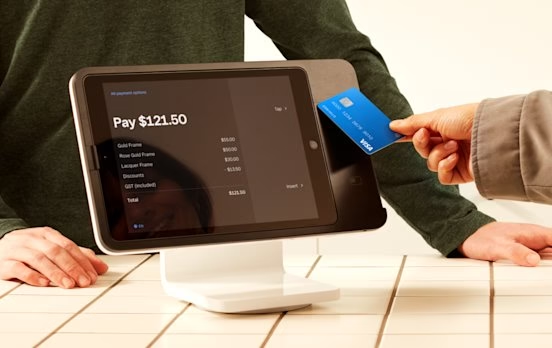Business owners face tough choices when upgrading point of sale tools. An agile Enterprise System can unlock growth, streamline operations, and secure customer data—all without requiring an army of IT specialists. In today’s Nigerian market, a scalable, cloud‑based POS Enterprise System delivers real‑time inventory management, mobile access, and seamless integrations that fuel expansion. Let us guide you through selecting and implementing the best Enterprise System for your business, addresses your biggest fears (data security, implementation complexity), and share with you practical tips to ensure a smooth rollout and lasting ROI.
Key Features to Look For in Your Enterprise System
1. Cloud‑Based POS Integration
Choose an Enterprise System that syncs sales data across devices and store locations instantly. Cloud‑based POS ensures you access daily reports from any smartphone or tablet, empowering you to make data‑driven decisions on inventory replenishment and staffing.
2. Scalability & Modular Design
Select an Enterprise System built on modular architecture. Start with core modules—sales, inventory, and reporting—then add features like loyalty programs or e‑commerce integrations as your business grows. Modular systems keep your upfront costs manageable and adapt to seasonal demands.
3. Real‑Time Inventory Management
Real‑time inventory updates eliminate stockouts and overstocking. A robust Enterprise System tracks SKU levels automatically, triggers reorder alerts, and integrates with suppliers. You’ll reduce carrying costs and keep popular items on the shelf.
4. User‑Friendly Interface
Non‑technical teams need an intuitive dashboard. Look for large icons, guided workflows, and quick‑start wizards. The right Enterprise System minimizes training time and reduces human error at checkout.
5. Secure Cloud Infrastructure
Your biggest fear may be data breaches. A reliable Enterprise System employs end‑to‑end encryption, multi‑factor authentication, and regular security audits. Verify your vendor complies with ISO 27001 or similar standards to safeguard customer payment information and sensitive business data.
Top Benefits for Nigerian Businesses
-
Boosted Operational Efficiency
A cloud‑based POS Enterprise System automates tasks like price updates and sales reconciliation. You’ll cut manual work by up to 60%, freeing your team to focus on customer service and strategy. -
Enhanced Business Growth
Scalable Enterprise System features let you open new outlets without ripping and replacing software. Simply provision new terminals in the cloud portal and replicate your settings—no costly hardware swaps required. -
Improved Retail Management
Centralize pricing rules, promotions, and employee permissions in one dashboard. When you launch a nationwide discount, an Enterprise System propagates that change instantly to every location. -
Actionable Analytics
Generate sales and customer behavior reports with a few clicks. An Enterprise System’s built‑in analytics reveal best‑selling SKUs, peak hours, and loyal customers—insights you can turn into targeted promotions and inventory strategies. -
Cost Savings
Cloud‑based Enterprise System subscriptions typically follow a predictable monthly fee. You avoid large CapEx investments in servers and IT staff, and you pay only for the features you use.
Overcoming Common Challenges
Addressing Implementation Complexity
-
Tip 1: Conduct a needs assessment. List your must‑have features and nice‑to‑have modules before you start demos.
-
Tip 2: Choose a vendor with local support and training resources. On‑site or virtual onboarding ensures your team moves quickly through the learning curve.
-
Tip 3: Pilot in one store. Validate workflows, iron out glitches, and gather staff feedback before company‑wide rollout.
Mitigating Cost Concerns
-
Tip 1: Compare total cost of ownership, not just license fees. Factor in hardware, training, and support.
-
Tip 2: Negotiate volume discounts for multi‑location deployments or annual billing.
-
Tip 3: Opt for a phased approach—start with core sales and inventory modules, then add advanced features once you see ROI.
Easing the Learning Curve
-
Tip 1: Leverage in‑app tutorials and video libraries.
-
Tip 2: Appoint “super users” in each department who can mentor colleagues.
-
Tip 3: Schedule refresher workshops quarterly to reinforce best practices and onboard new hires.
Implementation Roadmap for Your Enterprise System
-
Discovery & Planning (Weeks 1–2)
-
Define goals (e.g., reduce stockouts by 50%, cut checkout time by 30%).
-
Map current processes and pain points.
-
-
Vendor Selection (Weeks 3–4)
-
Shortlist 3–5 cloud‑based POS Enterprise System providers.
-
Request demos emphasizing your top features: real‑time inventory, scalability, and security.
-
-
Proof of Concept (Weeks 5–6)
-
Run a pilot in one location or department.
-
Measure performance against KPIs and gather staff input.
-
-
Full Deployment (Weeks 7–10)
-
Roll out the Enterprise System across all stores.
-
Schedule hands‑on training sessions and create quick‑reference guides.
-
-
Optimization & Support (Ongoing)
-
Review monthly analytics reports.
-
Adjust configurations (e.g., reorder thresholds) to fine‑tune operations.
-
Keep in touch with your vendor’s support team for updates and best practices.
-
Conclusion
Ready to transform your retail operations with a secure, scalable Enterprise System? Contact eBrand Promotion today. Our expert team will guide you from selection and deployment to ongoing support—ensuring you unlock the full power of a cloud‑based POS Enterprise System for sustainable growth in the Nigerian market.
Book your consultation now and take the first step toward smarter retail management!


